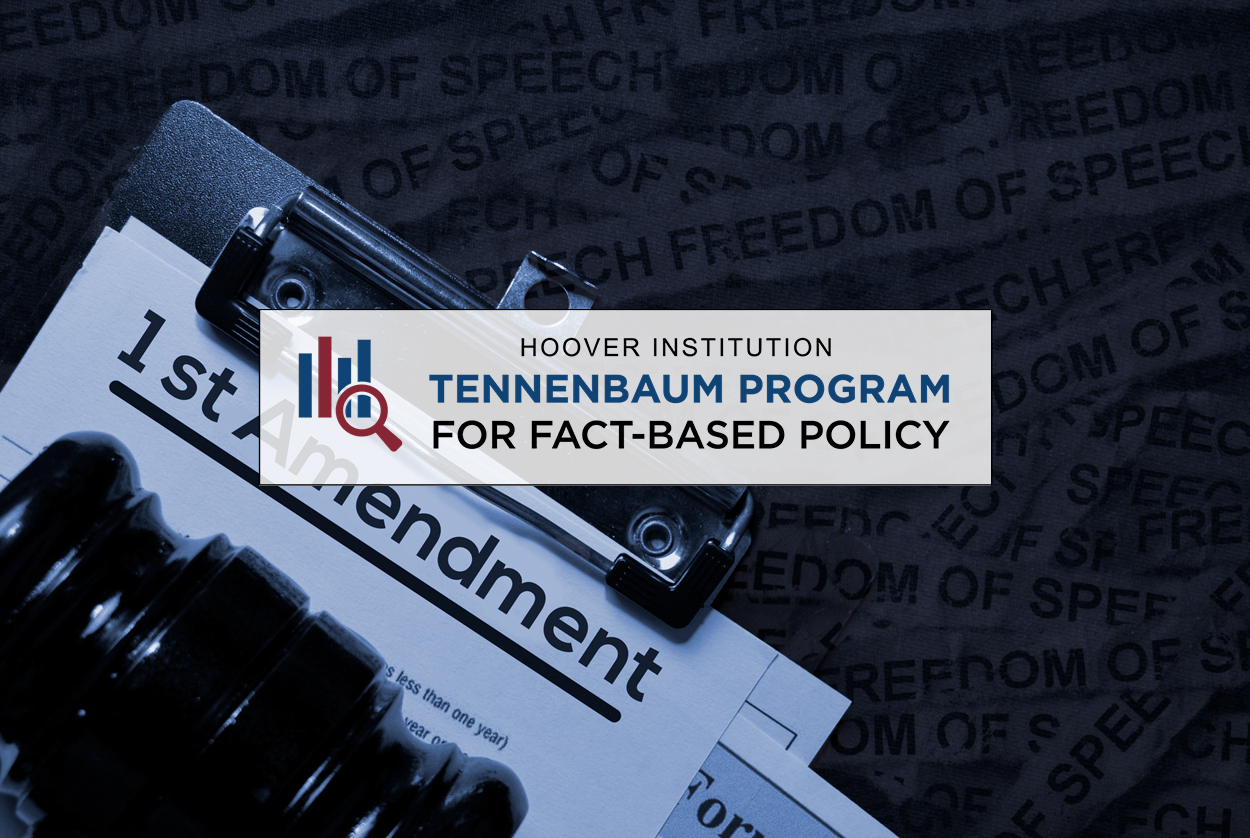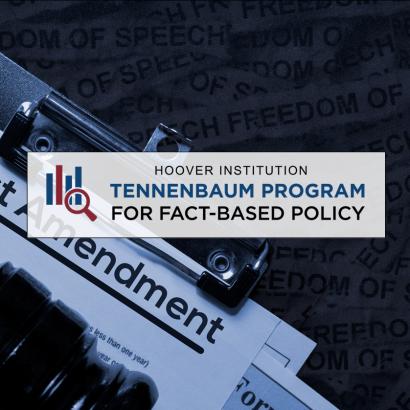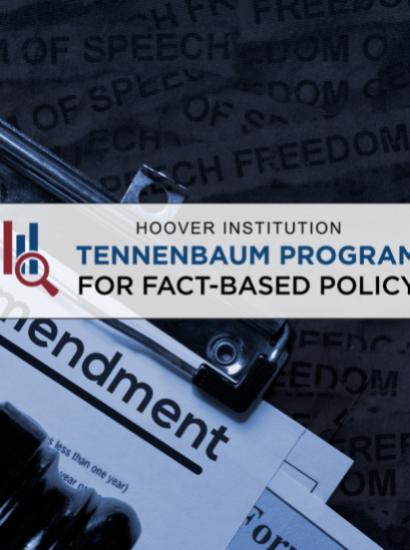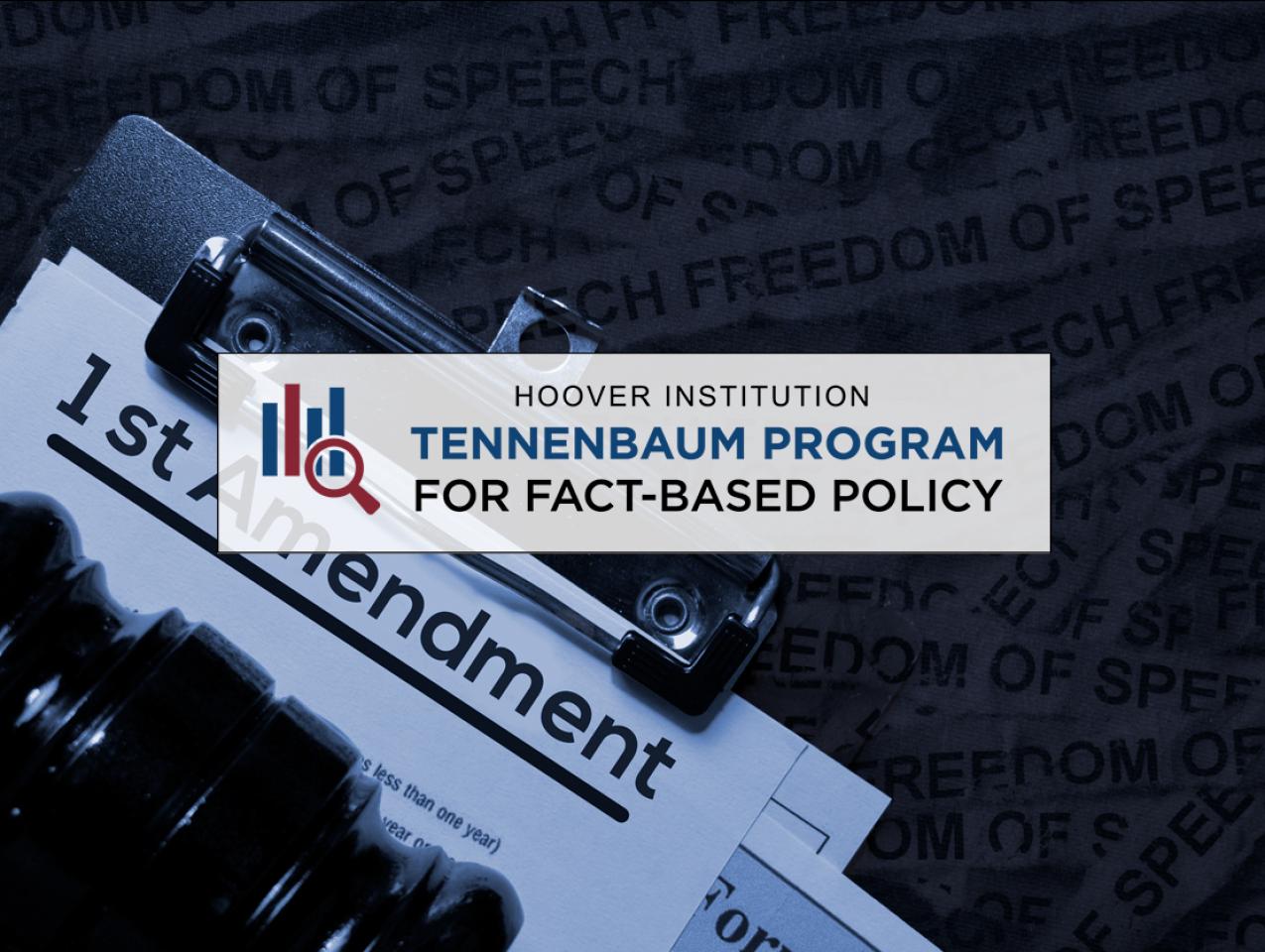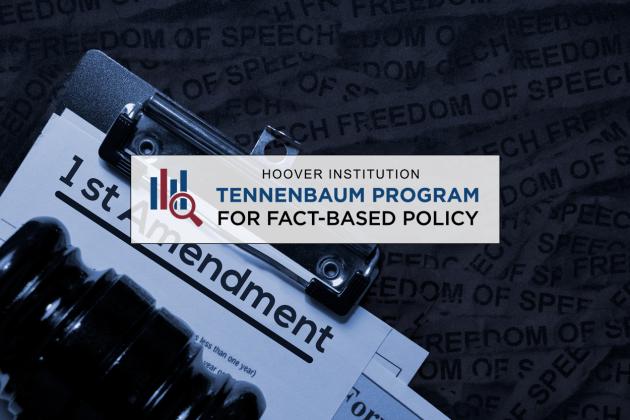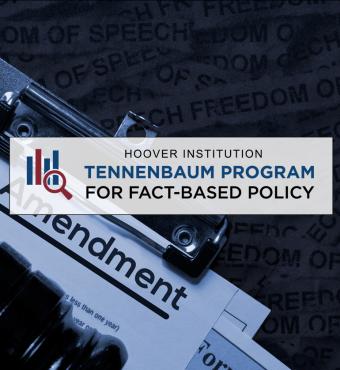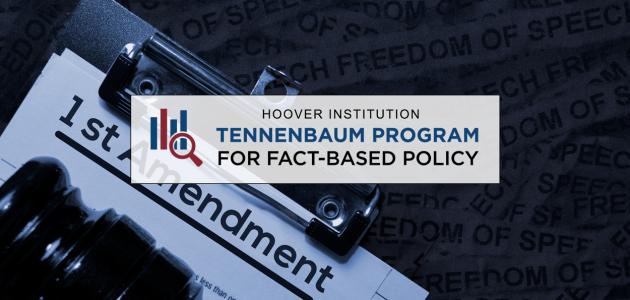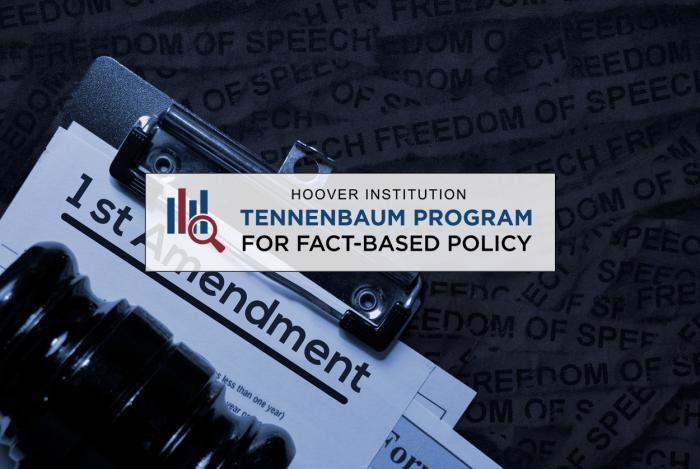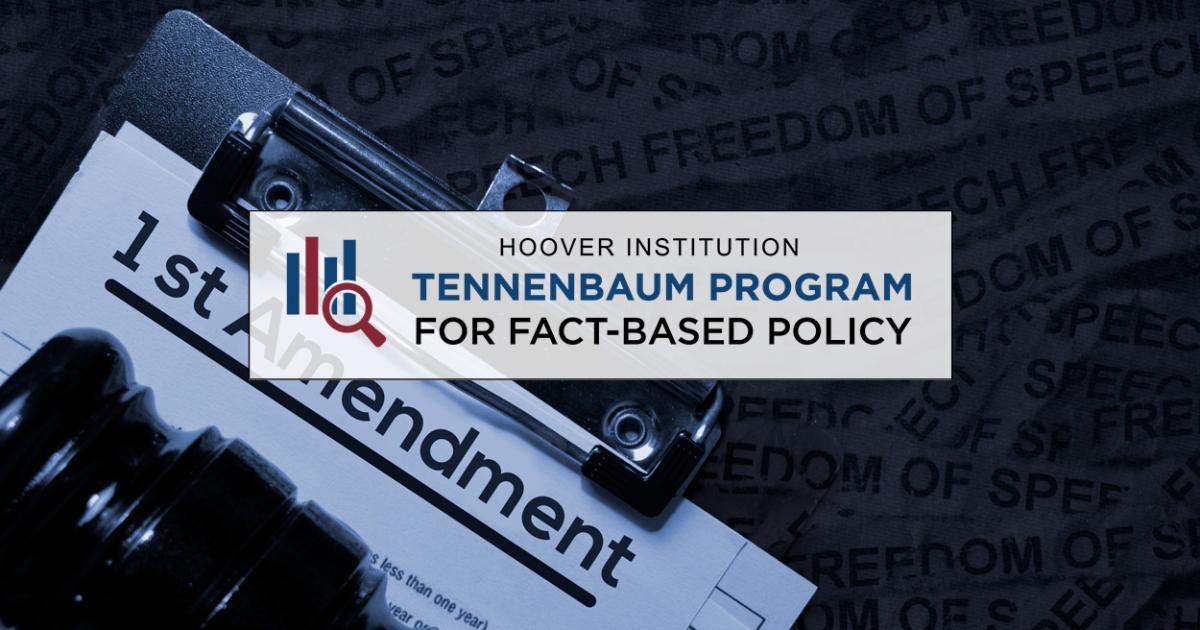- Politics, Institutions, and Public Opinion
- Judiciary
- Revitalizing American Institutions
The First Amendment
Congress shall make no law respecting an establishment of religion, or prohibiting the free exercise thereof; or abridging the freedom of speech, or of the press; or the right of the people peaceably to assemble, and to petition the Government for a redress of grievances.
What are the limits on free speech in America? What aren’t you allowed to say? And who is allowed to restrict speech?
Fact: This famous phrase is derived from the 1919 Supreme Court case Schenck v. United States, but the full phrase is that “The most stringent protection of free speech would not protect a man in falsely shouting fire in a theatre and causing a panic.” Justice Oliver Wendell Holmes, the author, was stating here that certain kinds of false factual claims are punishable, at least when they have a tendency to lead to immediate physical harm.
But beyond this, the actual holding of that case has been sharply limited by later precedents. Schenck v. United States introduced the “clear and present danger” test for when speech loses its constitutional protection, and applied that test to uphold restrictions on anti-draft speech during wartime, on the theory that speech had a tendency to cause draft evasion. But under the more recent Brandenburg v. Ohio precedent (1969), speech may be punished as incitement only if the speaker (1) intends to cause (2) imminent lawless action and the action is (3) likely to happen.
- “Someone should burn down theaters” would thus be protected speech.
- “Come with me to burn down the theater right now, and bring your torches” is not.
Fact: There is no First Amendment exception for “hate speech” (and thus not even a legal definition of “hate speech” under American law). The First Amendment protects all sorts of viewpoints: hateful, loving, or otherwise. To be sure, some speech, such as true threats of violence, can be restricted—but not because it has a supposedly hateful viewpoint. Anti-racist threats of violence are just as punishable as racist threats of violence, for instance.
Fact: Even “knowing lies” about the government, history, science, and so on are generally constitutionally protected; innocent mistakes are even more clearly protected. Some particular kinds of falsehoods are punishable: Classic examples of unprotected speech are defamation (false statements that damage someone’s reputation), fraud (lying to get money or other property), perjury (lying under oath), and false advertising (falsehoods, perhaps even unintentional ones, in commercial advertising). But the government isn’t allowed to use the criminal law or even civil liability to try to police falsehoods more generally.
Fact: The government can impose reasonable time, place, and manner restrictions that are unrelated to the content of speech, so long as such restrictions aren’t too burdensome. But it must apply those restrictions uniformly to speech expressing different views. Indeed, it generally can’t discriminate based on subject matter, let alone viewpoint.
Fact: The law can’t target flag burning for special punishments, the Supreme Court held in Texas v. Johnson (1989) and United States v. Eichman (1990). The First Amendment protects speech and symbolic expression even when it expresses offensive and anti-American ideas. However, the government can evenhandedly apply neutral laws to flag burning; for instance, someone who steals a flag and burns it can be punished for theft or for vandalism. But the law has to be applied equally regardless of whether the person stole a flag or anything else.
Fact: The First Amendment restricts the government but not private individuals or businesses. Its first words are “Congress shall make no law,” and the Fourteenth Amendment, which starts with “No State shall” has been read as extending that precept to state and local governments. Owners of private property, including individuals or businesses, aren’t constrained by the First Amendment. There’s nothing unconstitutional about restricting speech at your own dinner table, or in a shopping mall or workplace you own or operate, or in a school or university you run. However, some state laws (and, to a modest extent, federal laws) do, in some measure, limit the power of private employers, landlords, places of public accommodation, and educational institutions to restrict speech by employees, tenants, patrons, and students; those rules differ considerably from state to state.







